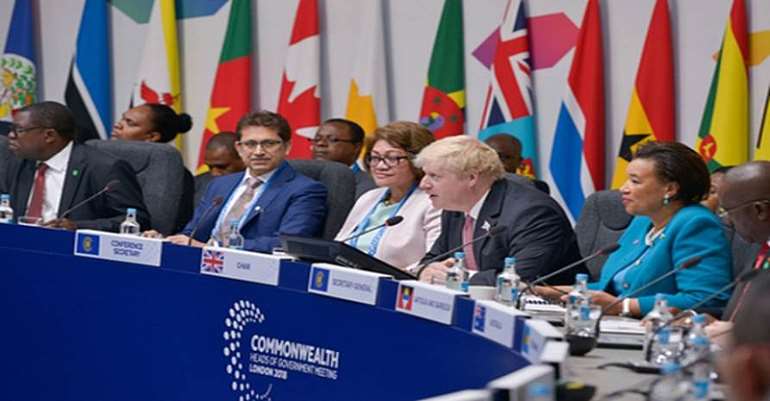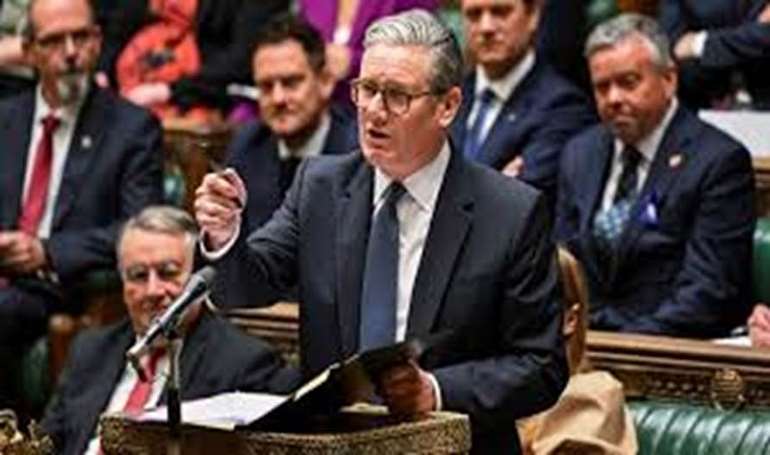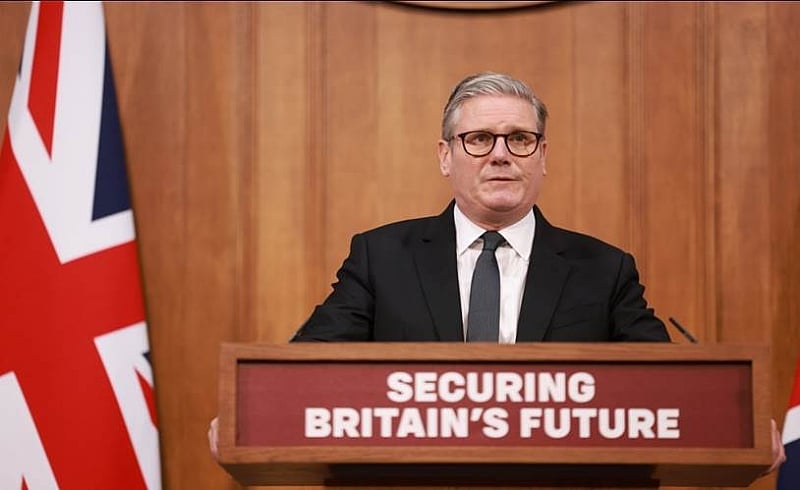With Donald Trump’s return to the White House in what many now call his “second missionary journey”, the global political landscape is already showing signs of a shift. Trump’s political philosophy, rooted in his uncompromising mantra of “America First,” has continued to create waves across international relations. His first tenure revealed a propensity for turning allies into adversaries, and his determination to “make America great again” now seems to operate by a playbook that tends to antagonise many of America’s long-standing global partners. As a result, the second coming of Trump should serve as a warning bell for global leaders, particularly for Britain’s Prime Minister, Sir Keir Starmer.
Britain, now divorced from the European Union and navigating its post-Brexit identity, must redefine its place in the world. Starmer’s Labour government, buoyed by a clear mandate, has a golden opportunity to reposition Britain as a global statesman. But to do this effectively, Starmer must look beyond domestic politics. The Labour Party can no longer afford to be seen as an entity focused solely on internal social policies. Issues like school feeding programmes, road maintenance, and even the National Health Service (NHS) reforms, important as they are, should be delegated to local governments.
The Prime Minister must focus on the bigger picture: a more robust global influence, national strategic alliances, climate change and an ideological pushback against Trump’s encroaching nationalistic world order. Already, Trump’s economic nationalism has led to stiff tariff impositions on American goods, prompting retaliatory trade policies from countries like Canada, Mexico and China. These measures have destabilised global trade, creating conditions of uncertainty in international markets. Of particular note was Trump’s controversial and audacious suggestion of annexing Canada. It was a statement that not only sparked diplomatic outrage but also underlined his unorthodox approach to international relations. While that idea might never materialize, it reveals the magnitude of Trump’s unpredictability and the urgent need for Britain to carve out its own diplomatic path.
It is obvious that Trump’s America is not necessarily interested in leading the free world as it once did. Instead, it seeks to insulate itself while demanding allegiance from allies. Given this new global climate, nations like Britain, under a focused Labour government, can rise to the occasion.

Commonwealth Heads of State Meeting 2018
The 56-member Commonwealth of Nations remains one of Britain’s most powerful but underutilised diplomatic assets. These countries, bound by shared histories, languages, legal frameworks, and cultural values, form a global web that spans every continent. Starmer must recognise the Commonwealth not as a relic of the past but as a springboard for a new kind of global diplomacy, one rooted in mutual respect, fairness, and shared progress. By leveraging the Commonwealth, Britain can lead a coalition that offers a compelling alternative to the divisive, self-serving rhetoric emerging from some quarters of the West. Issues like terrorism, food scarcity, climate change, and youth unemployment are global in nature and require cooperative global solutions. Rather than look to the United States for leadership on these matters, Britain can, and should, take the initiative.
An urgent convening of Commonwealth heads of state should be Starmer’s first step. This emergency summit could focus on formulating strategic blueprints for dealing with terrorism across the Sahel and Horn of Africa, establishing trade pacts that favour development among member nations, and promoting sustainable agriculture to fight food insecurity. Additionally, it could explore youth employment strategies that reflect the digital age, especially in nations with booming youth populations in what used to be known as Peace Corps in our days where young British graduates were drafted straight after university to go teach in secondary schools and colleges in any of the 56-member nations for a two-year term.
Historically, Labour has had moments of international prominence, notably, Clement Attlee’s role in the post-second world war reconstruction, Harold Wilson’s opposition to the Vietnam War, and Tony Blair’s controversial involvement in the invasion of Iraq. These moments, for better or worse, placed Britain at the centre of global affairs. Sir Starmer has the opportunity to define a new era of global engagement that is moral, inclusive, and pragmatic. But first, Labour must articulate a foreign policy that is not merely reactive but visionary. This means not just responding to the United States or following the European Union’s lead, but actually setting the agenda in multilateral forums such as the United Nations, World Trade Organization, and even informal platforms like a G56 Summit.
Second: Starmer should strengthen bilateral relations with such rising global powers as India, South Korea, Japan, and Brazil, nations that are keen on multi-polarity rather than unipolar dominance. In China, despite the many ideological and economic differences, Britain must find a way to maintain a dialogue that is both respectful and assertive. In Africa, where Chinese and Russian influence is growing by the day, Britain can re-establish itself as a trustworthy partner through development consultancy, educational exchanges, and technology transfer.

Third: Britain must lead by example in its own domestic policies. A country that claims to champion justice and fairness globally must practice the same at home. That means dealing decisively with issues like institutional racism, wealth inequality, and educational disparity. Post-Brexit Britain must prioritise trade as a tool of diplomacy. Commonwealth nations provide a market force of over 2.5 billion people. Strengthening these trade relationships through fair and balanced agreements can boost British exports while supporting industrialization in developing nations. Britain should promote tariff-free access for selected goods from low-income Commonwealth countries and assist in building robust supply chains that benefit both sides. Moreover, Britain should establish itself as a technological hub for the developing world. Investments in renewable energy, digital infrastructure, and artificial intelligence can position Britain as a critical partner in the 21st-century economy. Joint ventures with Commonwealth countries in tech incubation, innovation hubs, and scientific research would not only stimulate mutual growth but also bind these nations to Britain through enduring intellectual and economic ties.
The political void left by America’s retreat into nationalism needs to be filled by a credible and principled alternative. Britain, with its rich democratic tradition and institutional maturity, fits the bill. Starmer’s Labour must present itself as a champion of ethical leadership, democratic governance, and human rights advocacy. This includes supporting pro-democracy movements in repressive regimes and offering political asylum to persecuted activists. It also means investing in civic education across Commonwealth nations to empower citizens and strengthen institutions of democracy.
Furthermore, Britain should initiate a Commonwealth Human Rights Charter—a document that sets minimum standards for governance, gender equality, press freedom, and judicial independence among member nations. While such a charter would need to navigate the sensitive terrain of national sovereignty, it would give Britain a powerful moral standing in global discourse.
Climate change remains the most pressing existential threat of our time. Many Commonwealth countries, especially island nations in the Caribbean and Pacific, are on the frontlines of climate-related disasters. Starmer should champion a Commonwealth Climate Fund, supported by British expertise and finance, to help these nations adapt to and mitigate the impacts of climate change. By leading on climate, Britain can reclaim its reputation as a responsible global citizen. Collaborative projects involving reforestation, clean energy transitions, and coastal protection can demonstrate that economic development and environmental sustainability are not mutually exclusive.
On another level, global security is no longer just about armies and borders. It is about resilience against cyber-attacks, disease outbreaks, terrorism, and mass migrations due to conflict or climate. Britain should offer training programmes for security forces in partner nations, share intelligence on terrorism threats, and contribute to peacekeeping missions under the UN banner. The migration crisis, particularly from Africa and parts of Asia, is often framed in terms of border security. But Labour should promote a broader understanding, focusing on root causes such as poverty, conflict, and climate stress. Britain’s global leadership should include long-term strategies that address these foundational issues through investments and partnerships.
The world is entering a period of geopolitical fluidity. With the United States possibly moving into a more isolationist phase under Trump, the traditional architecture of global leadership is wobbling. Into this vacuum, Sir Keir Starmer and the Labour Party have a unique opportunity to reintroduce Britain to the world not anymore as an imperial overlord, but as a collaborative partner dedicated to justice, prosperity, and sustainability.
Labour must abandon the narrow tunnel of domestic fire-fighting and look to the horizon. Britain has the history, the institutions, and the global connections to lead the world. But it requires vision and commitment. It requires courage. And it requires Starmer to look beyond potholes and prescriptions, and instead, see a world waiting for serious leadership. Now is the time for Britain to stand up and be counted. And it begins with seeing and working for the bigger picture.


